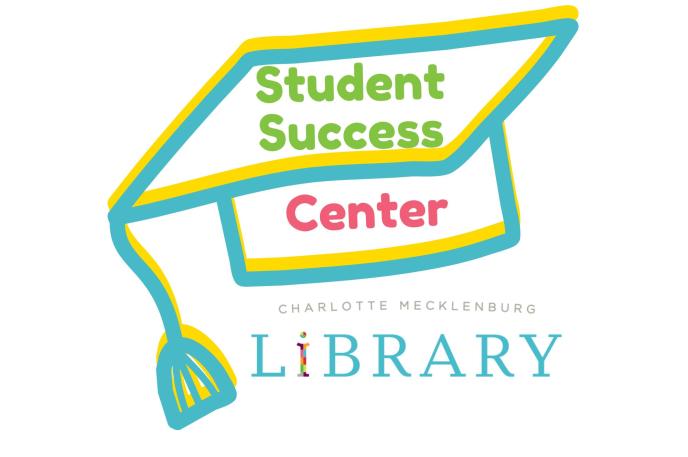
Student Success Centers Opening at Charlotte Mecklenburg Library
August 7, 2023
This blog was written by Elyse Berrier, program coordinator for the Charlotte Mecklenburg Library.
Charlotte Mecklenburg Library has always been a trusted provider of educational resources and services. With a growing catalog of over 700,000 items, as well as online learning resources, programs, and services, Charlotte Mecklenburg Library’s mission to improve lives and build a stronger community remains at the forefront of programming for all learners in our community.
According to the National Assessment of Educational Progress, the Nation’s Report Card providing important information about student achievement and learning experiences in various subjects, there has been little change in fourth grade reading scores from 1992-current. Data from Charlotte Mecklenburg Schools reports that 28.5% of third graders are defined as College and Career Ready in Reading. As a response to this ever-growing need in our community, Charlotte Mecklenburg Library is implementing a new program called the Student Success Center this fall.
The Student Success Center will be a physical learning space that will open in Library locations at least one afternoon every week. Trained volunteers will work with students in kindergarten-fifth grades who will seek help in one of these three ways: Homework Help, Skills Practice and tutor.com login help.
The fall semester will begin September 18th and run through December 15th. The Library plans to utilize their strengths through this program: providing physical welcoming learning spaces, providing high quality learning resources and tools, and uniting the community to provide this support. For the initial launch this fall semester, six Library locations will open a Student Success Center, with a plan to add five more Library locations each semester, with a goal for all Library locations to have a Student Success Center available to the community by Spring of 2025. For more information about the Student Success Center and how to volunteer, visit https://cmlibrary.org/services/student-success-center.
As the name of these spaces- Student Success Centers- suggest, Charlotte Mecklenburg Library remains committed to the success of students in our community, a task not taken lightly. Do you have a student in elementary school that needs support? Visit the Student Success Center this fall!
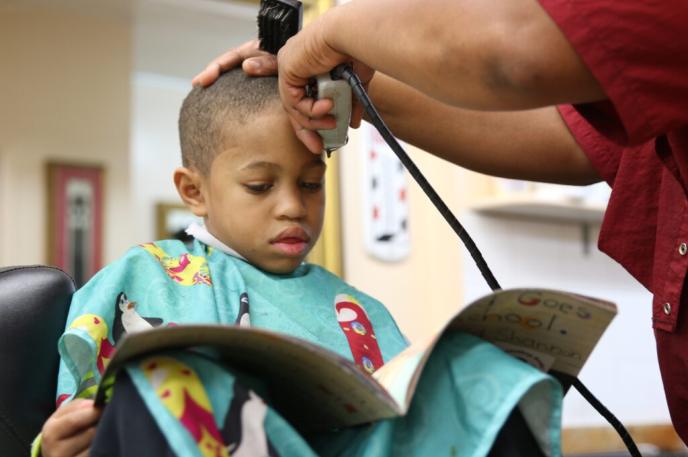
Barbershop Books and Charlotte Mecklenburg Library
August 24, 2023
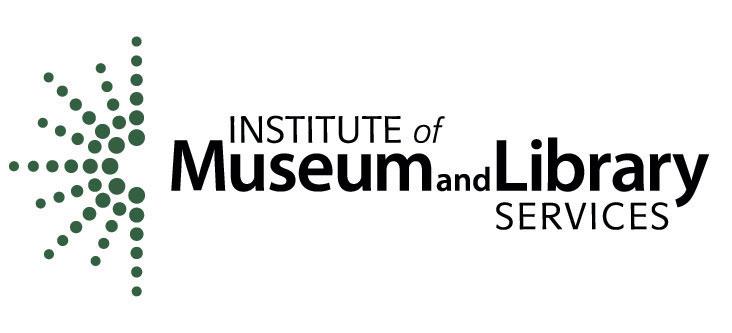
*Written by Katie Sullivan, Program Manager, Urban Libraries Council*
This summer, four library systems launched new initiatives focused on expanding reading opportunities for children with the help of a vital community hub, the barbershop.
Charlotte Mecklenburg Library, Cleveland Public Library, Columbus Metropolitan Library and Shreve Memorial Library are participating in the Barbershop Books Pilot for Libraries, an initiative in partnership with the Urban Libraries Council and Barbershop Books and supported by the Institute of Museum and Library Services.
Barbershop Books is an award-winning literacy nonprofit that inspires Black boys and other vulnerable children to read for fun through child-centered, culturally responsive and community-based programming and content. Numerous research demonstrates that an endemic cycle of inequitable policies has made Black boys "among the most marginalized groups of children in the U.S." Yet, a culture of care at school and in the community that includes activities such as mentoring can provide a path for excellence for Black boys.
The Barbershop Books program model centers the barber as a trusted messenger for Black boys that enter their space. The encouragement of reading by a Black male role model may contribute to increased reading motivation and therefore reading performance. This is especially critical in 2023, as the U.S. reckons with racial disparities in school performance that have been deepened by the impacts of the pandemic.
Libraries participating in the pilot program with ULC are working with local barbershops in their communities to provide stocked bookshelves in each shop, hosting events and providing other engagement opportunities focused on expanding reading access and supporting the development of reading identities for children. Additionally, Barbershop Books is providing expert training sessions so that libraries and barbers are positioned to help young readers develop literacy skills and a love of reading.
The launch events took place in June, July and August 2023 and provided an opportunity to encourage community members to visit the participating barbershops, where children will have access to engaging and age-appropriate reading materials while they or a family member receive a haircut. Libraries were also able to use the opportunity to connect attendees with other library services.
“I met a host of passionate library professionals who are committed to bringing books and fun reading experiences to underserved communities," said Irby of the recent launch events. "Witnessing local families experience the joy of reading in a barbershop for the first time and having the opportunity to distribute free books were memorable mission moments that demonstrate the transformative power of this innovative collaboration."
On June 3, 2023, Charlotte Mecklenburg Library hosted its kickoff event at Just for You Barber/Styling Academy, a barber school located in one of Charlotte’s Corridors of Opportunity. Barbershop partners offered free haircuts to children in attendance. At the event, the Library led story times, offered face painting and brought its “MoLi” mobile library, so children and families could borrow books and sign up for its summer reading program. Mecklenburg County Parks and Recreation also joined the event and shared valuable family-friendly resources.
“The Barbershop Books program is an evidenced-based program that can help us expand our reach into the community by putting books in the hands of young Black and brown boys and get them excited about reading.” said Meryle A. Leonard, Assistant Director of Outreach Services at Charlotte Mecklenburg Library. “We are honored and very excited to bring the Barbershop Books program to our community.”
Participating Locations in Charlotte
- Fourth Ward Barber & Hairstyle: 516 Graham St. #G
- Lucky Spot Barber Shop: 3240 Wilkinson Blvd Suite 3
- KD's Barbershop: 8824 Bellhaven Blvd A
- Prostyle and Barber: 4016 Wilkinson Blvd Suite D
- Boss Lady Blendz: 6932 North Tryon Street
- Touch of Precision School of Barbering: 2734 Freedom Drive Suite A-1
- Just For You Barber/Styling Academy: 5108 Regan Drive
- Rhodie's Barber and Styling: 5741 N Graham St
- Mar'Cutz Barbershop: 602 W Sugar Creek Rd #3
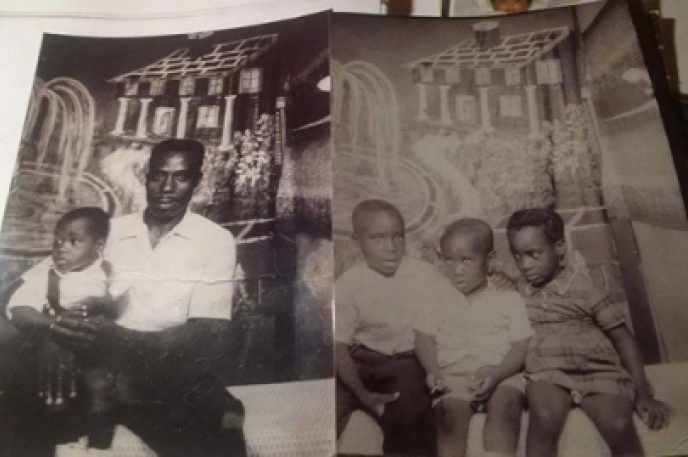
Rewriting the Stolen Stories of the Graham and Shipp Families
August 24, 2023
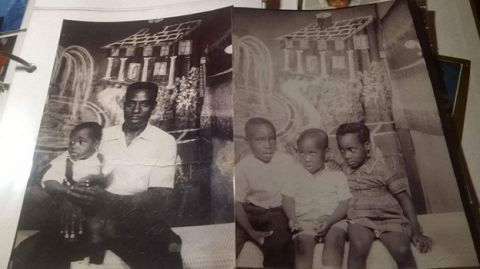
This blog was written by Sydney Carroll, archivist of the Charlotte Mecklenburg Library.
*sensitive content warning*
“You’ve found answers in four days that I couldn’t find in forty years. You did more than research...you found my family. We gave them back the stories that were stolen from them.”
Hidden inside the census, slave schedules, deeds, and vital records, Kevin Graham finally learned where he came from. It was not as simple to trace his lineage as one would think, given the intentional erasure of Black names in American historical records.
Kevin called the Robinson-Spangler Carolina Room to find answers he had been searching for over the past 40 years. He hoped to link his maternal third great grandfather, Wesley Shipp (1817-1875), to white plantation owner, Bartlett Shipp (1786-1869). Kevin believed that Wesley (or possibly Wesley’s parents) was the first Black Shipp but could not find the records to prove it.
He also wanted to link his paternal great grandfather, George Graham (1840-c1910), and great grandmother, Violet Luckey Graham (1840-c1910), to Elmwood Plantation. Both the Shipp and Graham families (Black and white) have roots in Lincoln County, North Carolina.
To put it simply, Black genealogy is a beast. It is not only difficult to conduct genealogical research due to the lack of historical records for Black Americans, but it is also an emotional road to travel. Many times, the traumatic reminder of slavery is woven into their DNA, resulting in more questions than answers.
With the assistance of Sydney Carroll, archivist of the Charlotte Mecklenburg Library, Kevin said that together we “made cracks in the brick wall” he hit after decades of searching for answers. Laughing, he described his ancestry as a “family bush” instead of a family tree because his lineage is wider than it is tall. After all that time and trauma, it would be understandable to hold some anger and resentment. But Kevin explained that, “There’s no hard feelings. I just want to know.”
WESLEY SHIPP | The First Black Shipp?
Accidental Discoveries
Kevin first inquired if his third great-grandfather, Wesley, was the first Black Shipp. In the initial stages of researching the Shipp line, we did not find concrete, historical evidence to support this theory. However, while conducting historical property research on Wesley's white enslaver, Bartlett Shipp, we “accidentally” discovered a deed dated April 10, 1852, that specifically named Wesley, his wife, Winnie Abernathy Shipp (1820-1905), and five of their children for sale to pay off his debts to his father-in-law, Peter Forney (1756-1834). [1]

Lincoln County, North Carolina Register of Deeds, Deed Book 42:204
It is unclear when Bartlett Shipp first enslaved Wesley, but census records and deeds indicate that it could have been as early as 1822 after purchasing 249.5 acres of land from Peter Forney to build his estate, The Home Place. [2] At this time, Wesley would only be about five years old, so it is possible that Bartlett’s intention was to enslave his mother and/or father and bought Wesley along with them. It is also possible that Bartlett purchased Wesley later in life as a young adult.
Bartlett was born in 1786 in Stokes County but moved to Lincoln County to study law under Joseph Wilson, making him the first Shipp in Lincoln County. These discoveries lead us to believe that Wesley or his mother/father were the first Black Shipps.
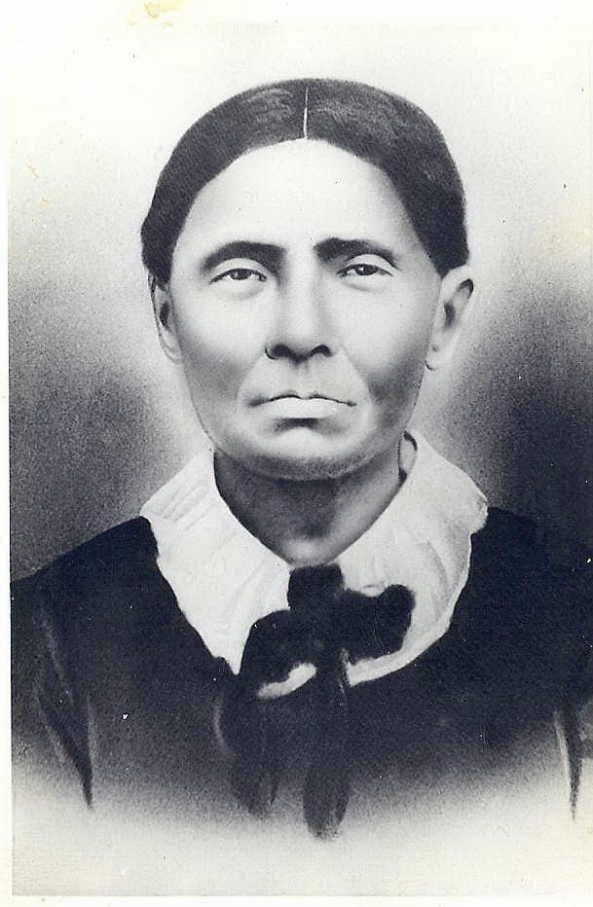
Winnie Abernathy Shipp (1820-1905). Courtesy of Ancestry.com
We are still unsure when Winnie, Wesley’s wife, became enslaved at the Shipp plantation. It is possible that the Abernathy family first enslaved Winnie since her son’s death certificate listed “Abernathy” as her maiden name.
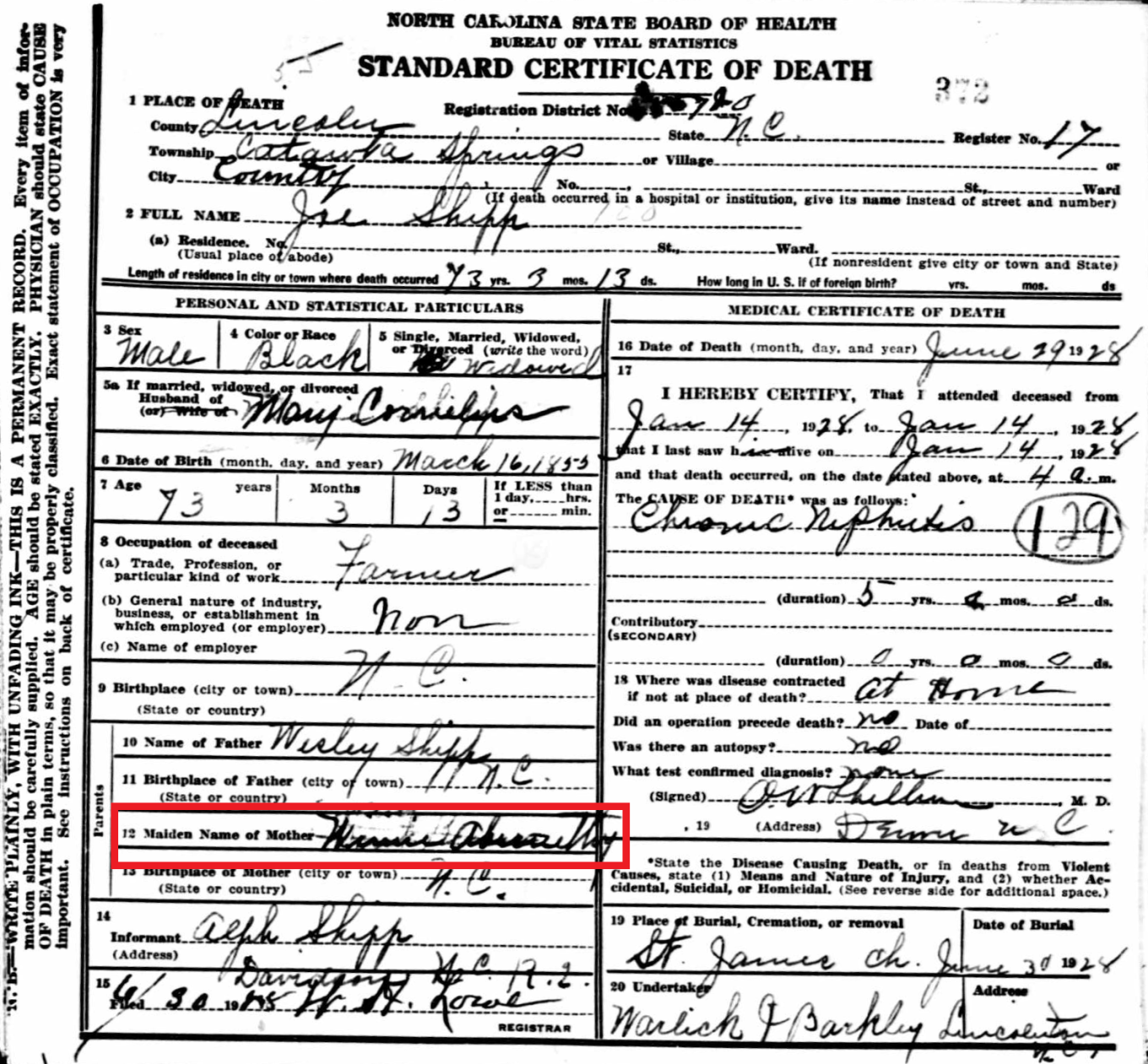
Death Certificate for Joe Shipp, June 29, 1928. [3]
Several public family trees on Ancestry list Turner Abernathy (1763-1845), a white farmer, as her father, but no documentation exists to prove it. Turner married Susannah Marie Forney (1767-1850) in 1784, so it is also possible that the Forney family enslaved Winnie and/or her mother, and later sold her to Turner. Or, Turner enslaved Winnie’s mother, whom he raped and impregnated, resulting in the birth of Winnie. This theory would explain why Winnie and her children are described as “mulatto” in the 1870 census. Enumerators assigned “mulatto” to individuals who had mixed Black and white ancestry, a result of the horrendous acts against enslaved Black women by their enslavers.
Clues in the Census
Census records that predate 1850 only include the head of household’s name and the number of people ("free white,” “free colored,” or “slave”) living in the household. Similarly, “slave schedules” recorded enslaved individuals separately during the 1850 and 1860 census. Most schedules do not record the enslaved person’s name, but include information relating to their age, gender, and “color.” Below is a general outline of the 1830-1860 census records for Bartlett Shipp:
- 1830 census-1 male aged 10-23 (Wesley, age 13); 4 females aged 10-23 (Winnie, age 10) [4]
- 1840 census-7 males aged 10-23 (Wesley, age 23); 6 females aged 10-23 (Winnie, age 20) [5]
- 1850 slave schedule-1 male aged 33; closest female is aged 26 [6]
- 1860 slave schedule-0 male aged 43; 0 female aged 40* [7]
*According to the deed, Bartlett Shipp sold Wesley, Winnie, and their five children in 1852, so this data verifies that they were no longer enslaved by Bartlett in 1860.
Unfortunately, early census records require genealogists to infer as to whether the person of interest is included in the stated age range or not. Because of the deed that mentions Wesley and Winnie by name, we have definitive evidence of their enslavement by Bartlett Shipp in 1852.
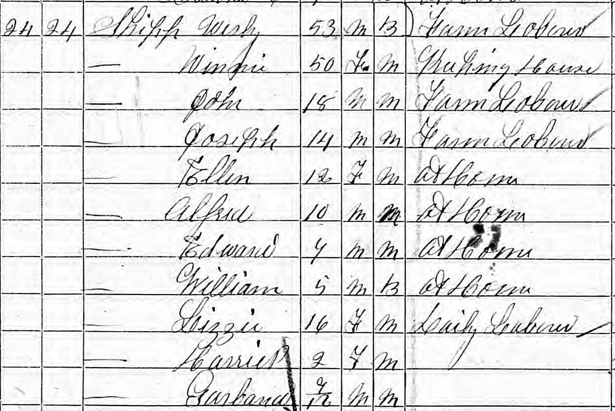
Wesley, Winnie, and their children in the 1870 Census [8]
In 1863, President Abraham Lincoln issued the Emancipation Proclamation, which declared that “all persons held as slaves [in the rebellious states] are, and henceforth shall be free.” [9]
Wesley appears as a “free” man in the 1870 census with Winnie and nine of their children. They lived in Catawba Springs Township, which is about 14 miles from where the Shipp plantation once existed. No other Black Shipp families lived nearby until the 1900 census, when we saw Winnie’s son, William Shipp, and granddaughters, Mary and Agnes Caldwell, living with her in the house she owned.
Life On The Home Place
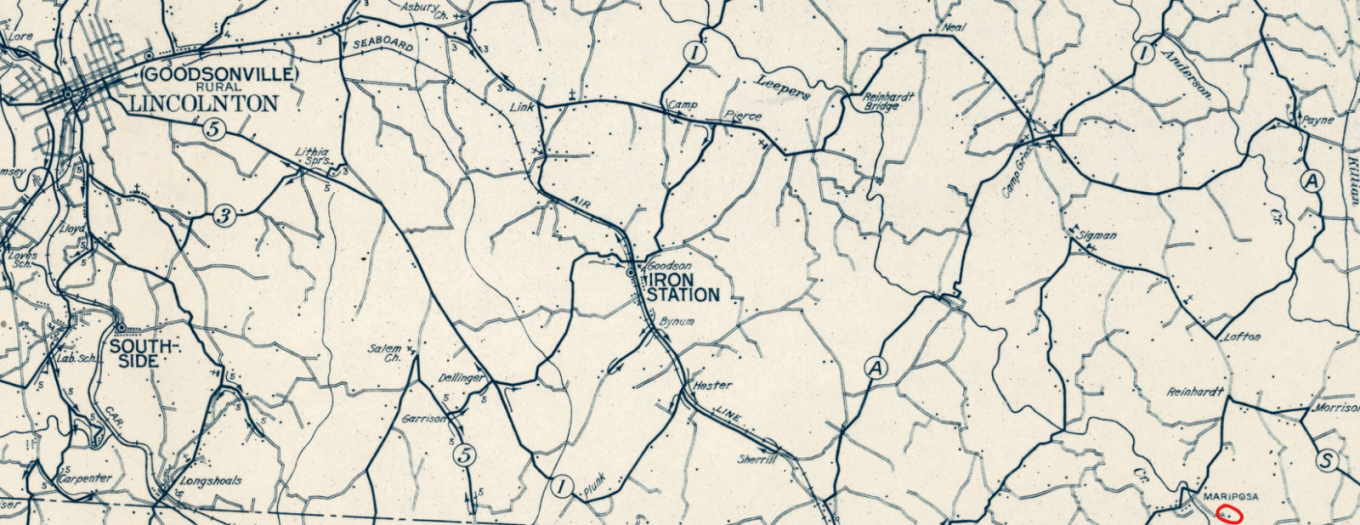
Rural Delivery Routes Map, Lincoln County, North Carolina, 1851. [10]
Wesley, Winnie, and their children were enslaved on the Shipp plantation, known to the family and community as “The Home Place.” [11] In August 1822, Bartlett purchased 249.5 acres of land from his father-in-law, Peter Forney, for $1,000 (area circled in red). [12] There is evidence that this is the same land that Bartlett built The Home Place, but there is no definitive evidence due to long lost boundary descriptions written into the deed, such as “the fish trap.” [13]
Wesley's family likely farmed cotton at The Home Place, but the Lincoln Courier also suggested that the land had “a quantity of gold, as well as iron.” [14]
“I wanted to know that all of my ancestors made a difference,” Kevin explained. “It strengthens me to know what my ancestors went through. Someone had to survive the boat ride, stay chained up, not risk their life running. My people had to survive Jim Crow, redlining, and the Civil Rights Movement. If they didn’t, we wouldn’t be having this conversation.”
GEORGE AND VIOLET GRAHAM | Life at Elmwood Plantation
“I saw George on Zennie’s death certificate. My grandfather was born in 1876, so it wasn’t a reach to think that [his father] could have been enslaved...I googled “Graham Plantation,” which is when I learned about Elmwood Plantation.”
In addition to researching his maternal line, Kevin also asked for help in linking his great grandfather, George Graham, on his paternal line to Elmwood Plantation. White plantation owner John Davidson Graham (1789-1847) built the Graham House, also known as Riverview, between 1825-1828 with the use of forced labor of those he enslaved. [15] Elmwood Plantation sat on 1,200 acres of land near the end of present-day Ranger Island Road in Lincoln County. [16]
We began our research by reading John Davidson Graham’s will dated 1847, where we found George listed by name on the second page. John bequeathed George to his son, Robert Clay Graham. At that time, George was 7-10 years old.
The 1870 census was the first census that recorded the formerly enslaved as people instead of property. In this census, George is listed as a farm laborer married to Violet Luckey Graham, with whom he shared a 3-year-old daughter named Lizzie.
"The success of Elmwood made the plantation owners prideful and boastful, which gave them the desire to preserve historical documentation to cement their legacy. Thus, it has given me a small glimpse into mine, and for that reason I am thankful and blessed.”
The 1900 census states they had been married for 38 years. [17] This means that George and Violet were married in 1862, three years before slavery’s end was enforceable by Union troops in the south. This ties Violet to the Graham family through her marriage to George while he was still enslaved by Robert Clay Graham. [18] If Violet was not enslaved by the Graham family before her marriage to George, the year 1862 is when her (and likely her mother's) connection to Elmwood Plantation began.
On old censuses, enumerators went door to door, so now, present-day researchers can get an idea of neighboring families by looking at who was listed above or below them on the census record. A few rows above George and Violet is Clay Graham--presumably, Robert Clay Graham, son of John Davidson Graham--who is listed as a farmer.
“Because of you I met George, his father, his mother. Violet and her mother. Their children... [Violet and George] are still family names. It matters. The small details matter.”
In Clay's household, a 60-year-old Black woman named Lizzie Luckey was listed as a domestic servant--an interesting coincidence that George and Violet's daughter's name was Lizzie, and that Lizzie's (the older Black woman) last name was Luckey, which matched Violet's maiden name.
The 1880 census shows an Elizabeth Alexander, described as the mother-in-law to the head of the household, living with George, Violet, and their children. [19] This finding confirmed that the Lizzie Luckey on the 1870 census in Clay's household was, in fact, Violet's mother. We believe that Alexander was Lizzie’s maiden name because she was born in Maryland, which is where the well-known Alexander family of Charlotte migrated from in the mid- to late- 18th century.
“I reached the pinnacle. I’m on the mountain top. I am a unicorn. Only 3% of African Americans can trace their lineage back to Africa. I found my way home. I am an American, but now I know the road of how I got here.”
As if he could not be more excited about our findings, we discovered that, according to the 1880 census, George’s father was born in Africa. [20] This is an extremely rare find, as only a small percentage of Black genealogists can trace their lineage directly to Africa.
SHIPP’S LANE AND GRAHAM ROAD | Intersection of Family History
“One of the white Graham descendants wanted to talk to my aunt, but the trauma was still so fresh that she couldn’t. Aunt Zannie worked in the same field that George probably worked in.”
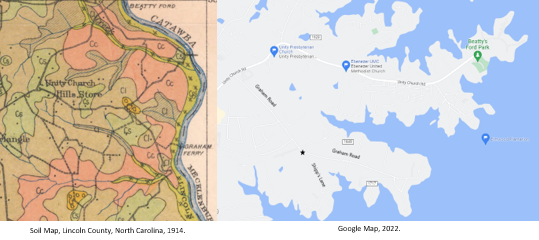
Maps of land surrounding Elmwood Plantation [21] [22]
Shipp’s Lane and Graham Road intersect near the original location of Elmwood Plantation, before Duke Power Company dammed the Catawba River to create Lake Norman. “Grandma Ida lived on Shipp’s Lane and our church was off Graham Road. I connected the two in my head knowing that my people were probably enslaved.” He continued, “It’s amazing that I see Graham Road and it means something to me. I see the name ’Shipp’ with two p’s and it means something to me.”
Bartlett Shipp’s plantation, The Home Place, sat approximately 7 miles away from this intersection, but he and his descendants owned quite a bit of land throughout Lincoln County. “It’s a puzzle that I didn’t even know connected,” Kevin said with disbelief.
“We may have gotten our freedom in 1863, but I grew up going to church down the street from where our enslavers went. So really, I was still on their land.”
Every Sunday morning as a child, Kevin and his family drove past Graham Road on their way to Ebenezer United Methodist Church. Kevin’s father, Zemerie, helped construct the new building, but Kevin recalls the “old white building” and cemetery across the street, where many of his family members are buried.
Ebenezer is located less than one mile from Unity Presbyterian Church, the church that John Davidson Graham and his family attended and are buried at. It is possible that Kevin’s enslaved ancestors also attended Unity, as people who were enslaved were permitted to sit in a designated area in the back pews.
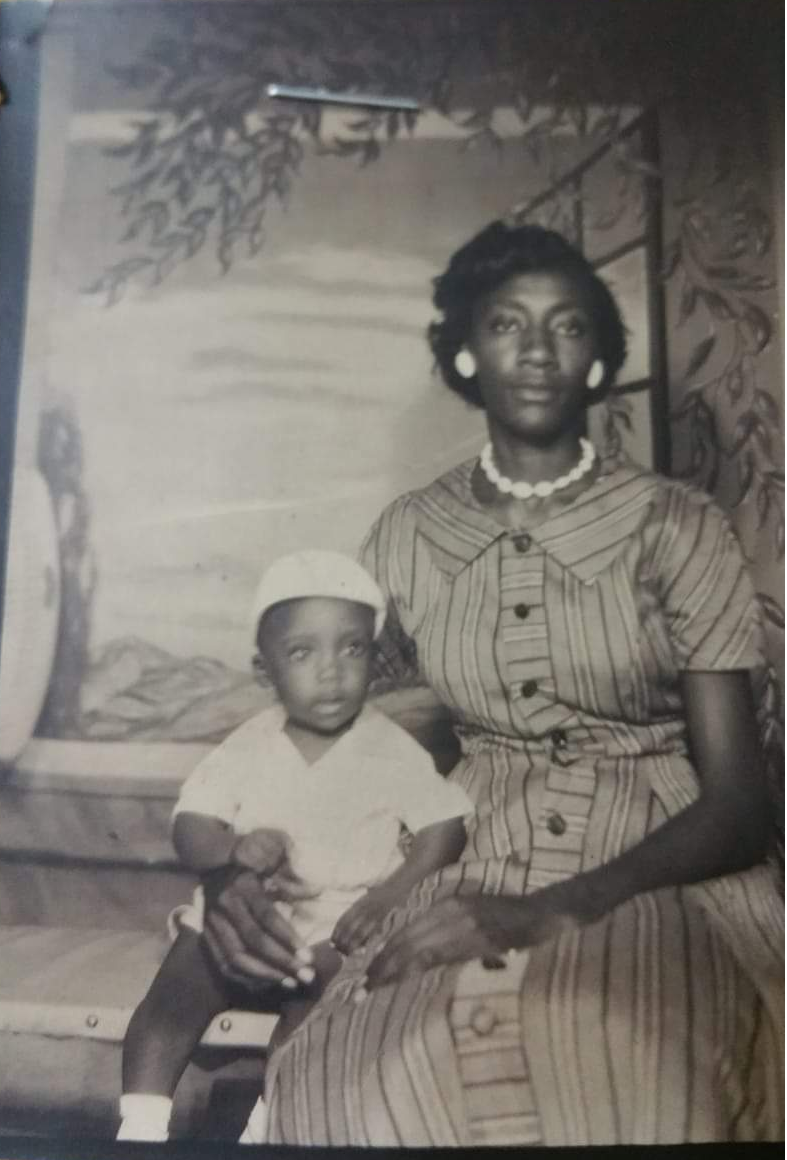
Wendell (brother) and his mother, Vaneva Shipp Graham, at Camp Meeting, c1962
“People say it’s been a long time, but it hasn’t really been much time at all. My father sharecropped. My mother picked cotton. I lived through the modern Civil Rights Movement. I was living and breathing as they were marching. Compared to them, I live my life with no limitations.”
THE GRAHAMS OF TODAY | Living in the Legacy
This We’ll Defend:
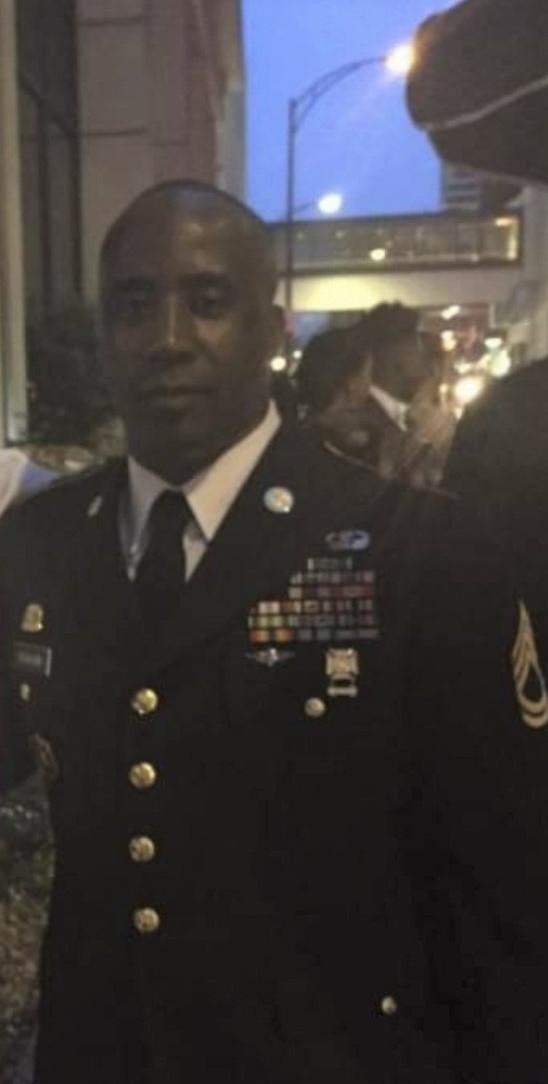
Kevin at Fort Jackson during Family Day, c2016
George’s ancestors spent most of their lives defending the country that legally enslaved them just two generations before. Kevin, his older brother, his father, and his five uncles all proudly served in the United States Army. “I served for 27 years, 9 months, and 8 days.” He continued, laughing, “but who’s counting? It was an honor.” Kevin retired from the Army as a Sergeant First Class.
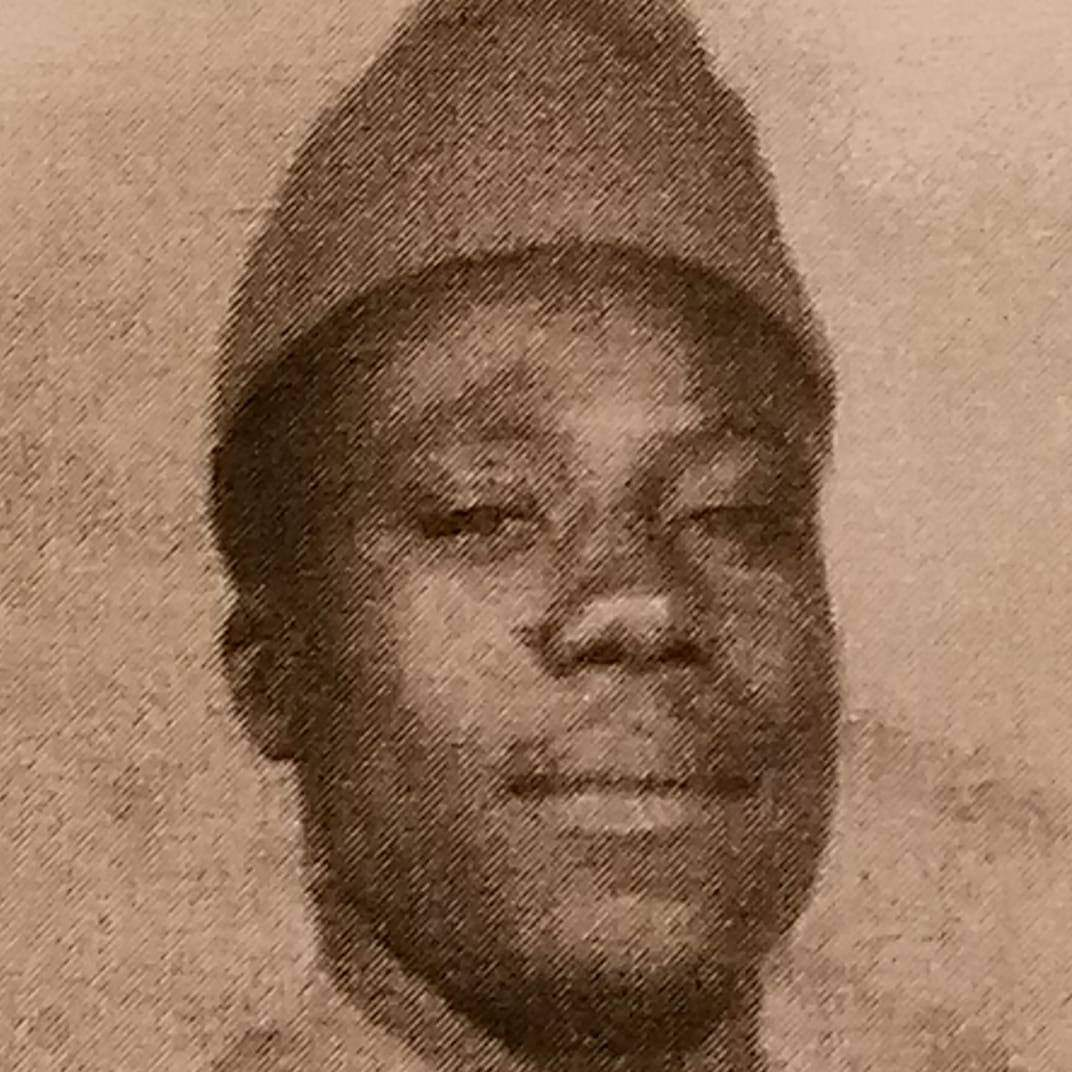
Zemerie Graham, Private First Class, 1942
“My father, Zemerie, achieved [military] awards higher than when I served. At the time, a colored man in the United States Army received awards higher than I received in 27 years of service, but he never got promoted based on color of his skin.”
“My father had different rights as a Black man in America than I have as a Black man in America. My father was better at everything he did. I benefit from the changes he made. My father was so patriotic. The way he loved his country, and I understand why. That’s why I love this country.”

Kevin serving in Tikrit, Iraq, c2005
Kevin continued, “People called my father “Little Soldier,” and he called my brother that too. Our family is known for service. We truly love this country. None of what I’ve learned takes away from that--it actually adds to it. George was a hard worker and had dreams of being free.”
Tucker’s Grove Camp Meeting Ground

Kevin and his family at Camp Meeting, c1967
Left to right: Stephen (brother), Zemerie (father), Wendell (brother), Andreá (sister), and Kevin
Founded in the first half of the 19th century by the Methodist Episcopal Church, Tucker’s Grove Camp Meeting served as a religious site for the spiritual crusade and renewal of the enslaved population. Camp meetings continued “after the abolition of slavery and has been operating continuously since 1876 as an A.M.E. Zion camp meeting site.” [23] Wesley, Winnie, George, and Violet may have attended a camp meeting in their lifetime. We can only wonder if their paths crossed.
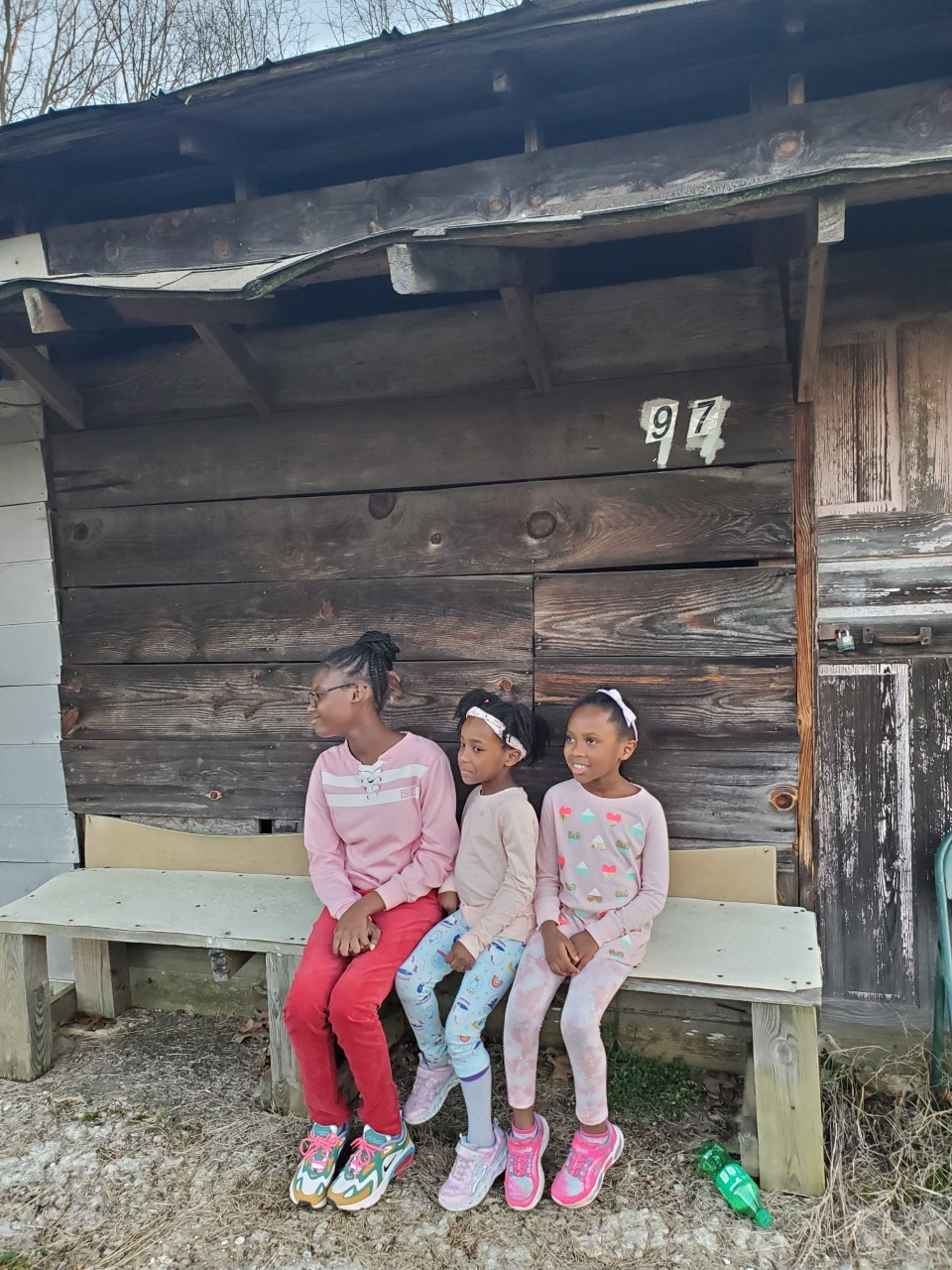
“I wanted my daughters to connect with their ancestors. The ground is the same. My people walked on this ground. My people sat on these benches.”
Kevin carries this tradition from his ancestors and passes it down to his daughters. Each August he attends “Big Sunday” with his family for fellowship and worship among the Black Christian community. “[We have] the ability to have conversations about the past. And that means the world to me. You can acknowledge that there is still pain but find that the truth is enriching.”
DNA Testing
“My family left breadcrumbs all over for me to make a connection back home. My life is full of that.”
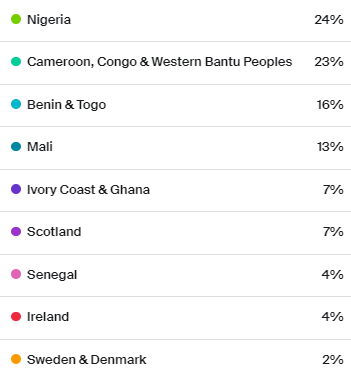
Ethnicity Estimate breakdown, courtesy of Ancestry.com
“I’ve had three separate strangers think I was Nigerian until they heard me speak. So whatever George had [from his father] is still very present. I still carry it. My ancestors are smiling down on me.” Kevin received the DNA test results above in July 2022, which confirms that those three strangers were right—he does, in fact, have quite a bit of Nigerian DNA.
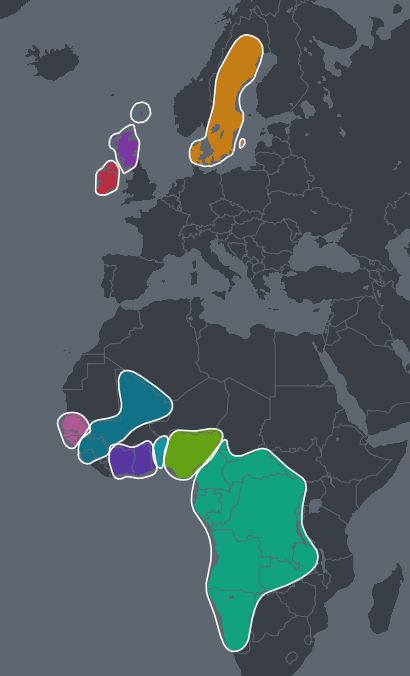
Ethnicity Estimate map, courtesy of Ancestry.com
All of Kevin's African genes stem from the "Slave Coast” of West Africa, which is common for people who have enslaved ancestors. His DNA Community profile on Ancestry reveals that his ancestors lived in Maryland, Virginia, and the Carolinas, all confirmed by what we saw on census and vital records.
Interestingly, Kevin has an estimated 13% European ancestry. Dr. Henry Louis Gates, Jr., widely known for his show “Finding Your Roots” on PBS, explains that “...racial purity is one more corroboration that the social categories of ‘white’ and ‘black’ are and always have been more porous than can be imagined, especially in that nether world called slavery.” [24]
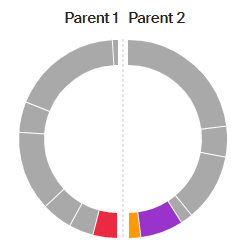
Ethnicity Inheritance Chart, courtesy of Ancestry.com
(Red-Ireland; Orange-Sweden and Denmark; Purple-Scotland)
“Well, our DNA proclaims loudly that we are a European people, a multicultural people, a people black as well as white. You might think of us as an Afro-Mulatto people, our genes recombined in that test tube called slavery.” -Dr. Henry Louis Gates, Jr.
Dr. Gates further explains that “58% of African American people, according to geneticist Mark Shriver at Morehouse College, possess at least 12.5% European ancestry.” [25] This ancestry comes from the result of a white enslaver raping and impregnating a Black female they enslaved—genes that are henceforth passed down from generation to generation.
We saw evidence of this atrocity while researching Winnie Shipp, who was described as “mulatto” along with her children in the 1870 census. The ethnicity inheritance chart above shows that European ancestry exists on Kevin’s paternal line as well.
Final Thoughts | No More Rabbit Holes
“They were living, breathing, loving humans. But back then, slaves were seen as an afterthought. You made them living, breathing, loving humans again. Thank you.”
The Robinson-Spangler Carolina Room policy for reference questions limits staff research time to two hours per patron. Admittedly, I spent more than two hours working with Kevin researching his family history. In fact, he made me promise to not go down any more rabbit holes.
As mentioned before, Black genealogy is a beast. Kevin faced tough questions and even tougher answers. Because of his courage to learn these truths, future generations of his family will now carry a piece of Wesley and Winnie Shipp, and George and Violet Graham with them forevermore.
--
The Robinson-Spangler Carolina Room’s historical and genealogical collections heavily focuses on local and regional materials, providing access to family histories, county and state records, wills, land and vital records, war records, and Ancestry Library Edition. Although Charlotte Mecklenburg Library has access to genealogical databases at every branch, do not hesitate to contact the Carolina Room and speak with our genealogy experts.
--
Citations
[1] Lincoln County, North Carolina Register of Deeds. Deed Book 42:204.
[2] Lincoln County, North Carolina Register of Deeds. Deed Book 42:628.
[3] Ancestry.com, North Carolina, U.S., Deaths, 1906-1930 [database on-line]. Provo, UT, USA: Ancestry.com Operations, Inc., 2014.
[4] Year: 1830; Census Place: Lincoln, North Carolina; Series: M19; Roll: 122; Page: 206; Family History Library Film: 0018088
[5] Year: 1840; Census Place: Lower Regiment, Lincoln, North Carolina; Roll: 364; Family History Library Film: 0018095
[6] The National Archive in Washington DC; Washington, DC; NARA Microform Publication: M432; Title: Seventh Census Of The United States, 1850; Record Group: Records of the Bureau of the Census; Record Group Number: 29
[7] The National Archives in Washington DC; Washington DC, USA; Eighth Census of the United States 1860; Series Number: M653; Record Group: Records of the Bureau of the Census; Record Group Number: 29
[8] Year: 1870; Census Place: Catawba Springs, Lincoln, North Carolina; Roll: M593_1146; Page: 136A
[9] National Archives and Records Administration (NARA), "The Emancipation Proclamation, NARA, Revised 2022-01-28, www.archives.gov/exhibits/featured-documents/emancipation-proclamation">https://www.archives.gov/exhibits/featured-documents/emancipation-procla..." rel="noreferrer noopener" target="_blank">www.archives.gov/exhibits/featured-documents/emancipation-proclamation">https://www.archives.gov/exhibits/featured-documents/emancipation-procla...
[10] United States, Post Office Department. Rural delivery routes, Lincoln County, N.C. [Map]. 1:63,360, Washington, D.C.: Post Office Dept., c1910s. https://dc.lib.unc.edu/cdm/singleitem/collection/ncmaps/id/1799/rec/8" rel="noreferrer noopener" target="_blank">https://dc.lib.unc.edu/cdm/singleitem/collection/ncmaps/id/1799/rec/8
[11] Lincoln County, North Carolina Register of Deeds. Deed Book 49:99-100.
[12] Lincoln County, North Carolina Register of Deeds. Deed Book 42:628.
[13] Foard, Davyd Hood. National Register of Historic Places Registration Form, Mount Welcome. Prepared January 28, 1991. Accessed July 2022. www.lincolncounty.org/DocumentCenter/View/14623/Mount-Welcome?bidId=">http://www.lincolncounty.org/DocumentCenter/View/14623/Mount-Welcome?bidId=" rel="noreferrer noopener" target="_blank">www.lincolncounty.org/DocumentCenter/View/14623/Mount-Welcome?bidId=">http://www.lincolncounty.org/DocumentCenter/View/14623/Mount-Welcome?bidId=
[14] "Lincolnton; Thursday, March 30, 1848." Lincoln Courier (Lincoln County, North Carolina), Mar. 30, 1848.
[15] Fortenberry, Ken. “Historic Elmwood Plantation.” Lincoln County North Carolina History Facebook Group, 2010. www.facebook.com/750601628308901/photos/historic-elmwood-plantation-2010...">https://www.facebook.com/750601628308901/photos/historic-elmwood-plantat..." rel="noreferrer noopener" target="_blank">www.facebook.com/750601628308901/photos/historic-elmwood-plantation-2010...">https://www.facebook.com/750601628308901/photos/historic-elmwood-plantat...
[16] Ibid.
[17] Year: 1870; Census Place: Catawba Springs, Lincoln, North Carolina; Roll: M593_1146; Page: 157B
[18] Year: 1900; Census Place: Catawba Springs, Lincoln, North Carolina; Roll: 1203; Page: 6; Enumeration District: 0105; FHL microfilm: 1241203
[19] Year: 1880; Census Place: Catawba Springs, Lincoln, North Carolina; Roll: 970; Page: 257B; Enumeration District: 100
[20] Ibid.
[21] Burke, R.T. Avon, W. Edward Hearn, and Lonn Leland Brinkley. Soil Map, North Carolina, Lincoln County [map]. 1:62,500. Washington, D.C.: United States Government Printing Office, 1914. https://dc.lib.unc.edu/cdm/singleitem/collection/ncmaps/id/297/rec/10" rel="noreferrer noopener" target="_blank">https://dc.lib.unc.edu/cdm/singleitem/collection/ncmaps/id/297/rec/10
[22] Google Maps, 2022.
[23] Survey and Planning Unity Staff, State Department of Archives and History. National Register of Historic Places, Tucker's Grove Camp Meeting Ground. Prepared Feb. 17, 1972. www.lincolncounty.org/DocumentCenter/View/14649/Tuckers-Grove-Camp-Meeti...">https://www.lincolncounty.org/DocumentCenter/View/14649/Tuckers-Grove-Ca..." rel="noreferrer noopener" target="_blank">www.lincolncounty.org/DocumentCenter/View/14649/Tuckers-Grove-Camp-Meeti...">https://www.lincolncounty.org/DocumentCenter/View/14649/Tuckers-Grove-Ca...
[24] Gates, Henry Louis, Jr. "Michelle's Great-Great Great-Grandaddy--and Yours." History News Network. Columbian College of Arts & Sciences, The George Washington University, Published Oct. 8, 2009. https://historynewsnetwork.org/article/118292" rel="noreferrer noopener" target="_blank">https://historynewsnetwork.org/article/118292
[25] Ibid.
Bibliography
Davidson College Archive and Special Collections. "Elm Wood (Graham) Plantation." Under Lake Norman. Published 2015. Accessed July 2022. https://davidsonarchivesandspecialcollections.org/archives/community/und..." rel="noreferrer noopener" target="_blank">https://davidsonarchivesandspecialcollections.org/archives/community/und...
Sherrill, William. Annals of Lincoln County North Carolina. Charlotte, NC: The Observer Printing House, Inc., 1937. (NCR 975.61 L56 S55a)
York, Maurice C. Our Enduring Past: A Survey of 235 Years of Life and Architecture in Lincoln County, North Carolina. Lincolnton, NC: Lincoln County Historic Properties Commission, 1986. (NCR 975.61 L56 B87m)

Charlotte Mecklenburg Library Celebrates Newcomers to the Queen City
August 24, 2023
Whether you’re new to Charlotte or new to the United States, Charlotte Mecklenburg Library is excited you’ve chosen the Queen City as your home!
Charlotte is Certified Welcoming, which is a formal designation by Welcoming America for cities and counties that have created policies and programs reflecting their commitment to immigrant inclusion. As of 2023, Charlotte is one of just 18 cities and counties across the United States with this designation. The Library recognizes the important role residents like you play in the vibrancy of our city’s neighborhoods, and we encourage you to get involved and stay connected.
One way we do this is through our WelcomeCLT initiative. The purpose of WelcomeCLT is to provide new residents (with an emphasis on international newcomers) with information and resources about navigating their new community.
We have a WelcomeCLT website that contains useful links, videos, information, and resources. But if you need more than what you see, we have additional resources listed on our WelcomeCLT Libguide. In addition to our digital spaces, each library location has world language materials. In total, our library branches have 16 languages represented in our print collections throughout Mecklenburg County. Each branch also has a WelcomeCLT kiosk, a designated place that houses flyers and brochures featuring local resources to help newcomers settle into their new homes.
Welcoming Week on September 8 – 17, 2023
This year the library will be celebrating Welcoming Week on September 8-17, 2023. Through Welcoming Week, organizations and communities bring together neighbors of all backgrounds to build strong connections and affirm the importance of welcoming and inclusive places. Here are some programs you may want to check out!
PFLAG Charlotte Spanish Speaking LGBTQIA+ Peer Support Series
Saturday, September 9 at 10:00am for Teens, New Adults and Adults (Ages 12 and up)
Join PFLAG Charlotte for a 3-part series about LGBTQIA+ allyship. This workshop is designed for parents, caregivers, and extended family members of LGBTQIA+ individuals, who are interested in supporting their LGBTQIA+ loved ones.
South County - Storytime: All Are Welcome
Wednesday, September 13 at 11:00am for Preschoolers (Ages 3-5)
Engage your preschoolers with books, activities, stories and songs that encourage language and pre-reading skill development in order to help them grow into successful readers.
University City Regional Library English Conversation Club
Wednesday, September 13 at 11:00am for Adults (Ages 18 and up)
This program provides a relaxed and open environment to practice your English conversation skills. No lectures, just conversations. This program is intended for non-native English learners, and all levels are welcome! We do not follow any curriculum as this is a weekly opportunity to speak English in a non-judgmental conversational setting.
Myers Park - International Taste Test
Wednesday, September 13 at 4:30pm for Preteens and Teens (Ages 9-18)
Are you interested in trying some new snacks? Join us as we try unique treats from around the world and see if you leave with a new favorite!
Virtual – English for Job Seekers
Thursday, September 14 at 6:00pm for New Adults and Adults (Ages 16 and up)
A two-part workshop designed for those who speak English as a Second Language (ESL). Part 1 is a virtual group session designed to share resources and prepare participants for job seeking in America. Part 2 is a 1-on-1 mock interview designed to practice interview skills in English and receive helpful feedback to be used in a formal setting. The mock interview will be scheduled at the conclusion of the group session.
The Library regularly hosts programs throughout the year to meet the growing group of newcomers in our area. To register for these programs or find more, visit the Library Events page.
WelcomeCLT Beanstack Challenge on September 1-30, 2023
To take our celebration one step further, our system has a WelcomeCLT Beanstack Challenge throughout the entire month of September. The program will include a sign-up and completion prize.
Whether you just moved to Charlotte or are a long-time resident, there are a series of activities to choose from that will help you contribute to making Charlotte a welcoming place for all. To complete the challenge, a user must complete three activities from their selected track. There are three tracks total, which are defined below.
- New Americans - New Americans might be immigrants, refugees, or temporary or long-term visitors. Some example activities on this track include visiting the WelcomeCLT kiosk at your local branch and the WelcomeCLT website to find resources useful to New Americans.
- New to Charlotte - Have you moved to Charlotte, NC in the past few years? Charlotte has so much to offer for newcomers so it’s important to explore. Some example activities on this track include attending a local festival or a WelcomeCLT event to learn more about what Charlotte has to offer.
- Welcomers - Are you a native Charlottean or someone who moved here a while ago? Then you are part of the welcome wagon! Some example activities on this track include reading a book about a character from another culture or shopping at an international grocery store. It is people like you who make Charlotte a great place to live!
Once three activities have been completed, the user will be eligible for the completion prize: a WelcomeCLT insulated grocery tote. All prizes can be picked up at any Charlotte Mecklenburg Library location, while supplies last.
WelcomeCLT Resource Fair on Friday, September 29, 11am – 2pm
If you are new to Charlotte or new to the SouthPark neighborhood, make sure to end our welcoming festivities with a stop by the WelcomeCLT Resource Fair on Friday, September 29 at 11:00 a.m. This event will take place at our SouthPark Regional Library. Community partners will be on hand to bring valuable resources to new arrivals. At the event, you will be able to learn more about the library and visit with your new neighbors!
This blog was written by Lonna Vines, branch manager at the Myers Park branch of the Charlotte Mecklenburg Library.
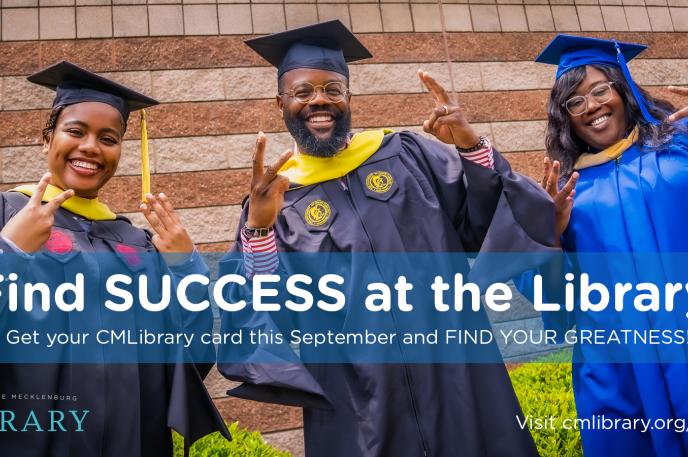
Library Card Sign-Up Month returns this September
August 30, 2023
This blog was written by Darrell Anderson, marketing and communications specialist for Charlotte Mecklenburg Library.
September is Library Card Sign-up Month, and it's the perfect time to get a card of your own. Charlotte Mecklenburg Library offers millions of resources including books, music, movies, creative materials, digital resources and programs (in-person and online) – all for FREE with a Library card. Signing up for a Library card is easy and anybody can do it. CLICK HERE to sign up for a Library card and download the CMLibrary mobile app on your tablet or smartphone. Use the app to place holds, access resources and much more. Check out just a small sampling of all the Library has to offer:
FREE Digital Resources
The Library is a tremendous one-stop shop, not just for books but for digital resources and so much more. Whether you need resources for your small business or just want to stream the newest hit music, the Library has a vast catalog of digital resources to fit your needs. You can access online tutoring and homework help for children through Tutor.com or find the resources to support a new (or existing) business venture with LinkedIn Learning. Maybe you want to perfect an existing skill - or learn a new one - with Universal Class or learn a new language with Transparent Language. When you have a Charlotte Mecklenburg Library card, you can access a multitude of online resources for FREE.
Do you enjoy watching movies or listening to music? Film and music buffs can benefit from a Library card, too. With the kanopy, OverDrive/Libby, hoopla and Freegal Music apps – again, available for FREE with a Library card, you can stream or download films, documentaries and the newest songs. Stream the latest from Beyoncé, Bad Bunny and classic Pink Floyd? Yep. Rediscover the literary works of Jane Austen, Isabel Allende and John Grisham? Absolutely.
The Library has everything you need. Whether it’s resources for that work project or the latest trending BookTok read, Charlotte Mecklenburg Library has exactly what you’re looking for.
Value Like No Other
Are you curious about how much money a Library card can really save you? $100? $300? Even up to $1,000! Subscription services can be pricey and tend to add up over the course of a calendar year, not to mention how much you might spend on books, magazines and music. There’s no need to pay for subscription services ever again. See how much you can save with the Library by using the Library Value Calculator. Input the number of books, magazines, DVDs, music and resources you’ve purchased or used in a year, and you’ll be amazed at how much you could save by switching to the Library. The numbers don’t lie; a Library card is a great value!
Online Programming from the Library
Did you know that you can participate in Library programming even while staying home? The Library is always here to support the community online, 24/7. Join us for a virtual storytime with your family or receive resume help all from the comfort of your couch. The Library offers a wide range of online programming for children, teens and adults on a daily basis.
See our listing of upcoming programs below.
FOR MORE INFORMATION AND TO REGISTER FOR PROGRAMS CLICK HERE
Get a Card Today
Signing up for a Library card is easy. CLICK HERE to sign up for one and download the CMLibrary mobile app on your smartphone or tablet for immediate access to place holds, access resources and much more.
So, now that you know everything you can do with your Library card, what are you waiting for? Join Charlotte Mecklenburg Library and get your Library card today!
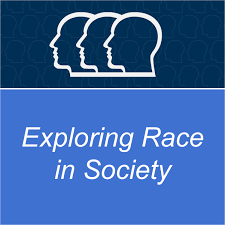
Exploring Race in Society
Essays that provide a deeper understanding of how current issues stem from actions and policies of the past.
Designed for high school and undergraduate students, Exploring Race in Society contains proprietary essays that provide today’s students with a deeper understanding of how current issues stem from actions and policies of the past.
Each topic includes an overview article and three essays suggesting potential solutions. Solutions essays are written by a diverse group of writers representing the fields of academia, journalism, medicine and other disciplines working to address issues related to race.
Topics include: Affirmative Action, Black Lives Matter Movement, Digital Divide, Food Insecurity, Police Use of Force, Wealth Gap and more.
Contributor Training
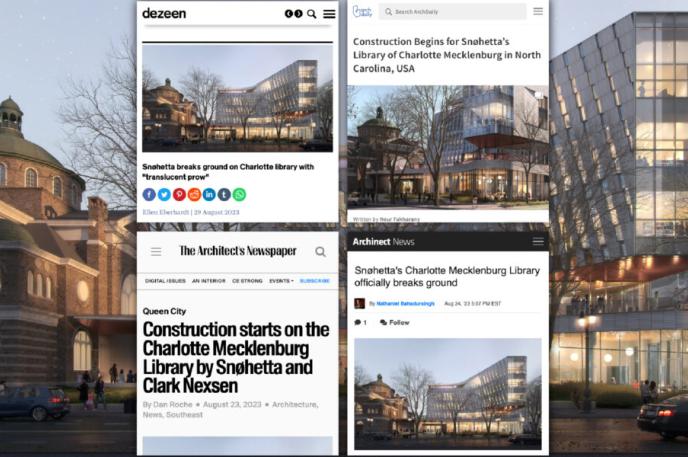
Construction of new Main Library makes national design news
September 7, 2023
*This blog was compiled and written by Maggie Bean, Library Foundation*
The new Main Library groundbreaking brought a well-deserved spotlight to the innovative and architecturally stunning project led by internationally acclaimed architects Snøhetta:
https://www.dezeen.com/2023/08/29/snohetta-breaks-ground-charlotte-library/
https://www.archpaper.com/2023/08/construction-charlotte-mecklenburg-library-snohetta-clark-nexsen/
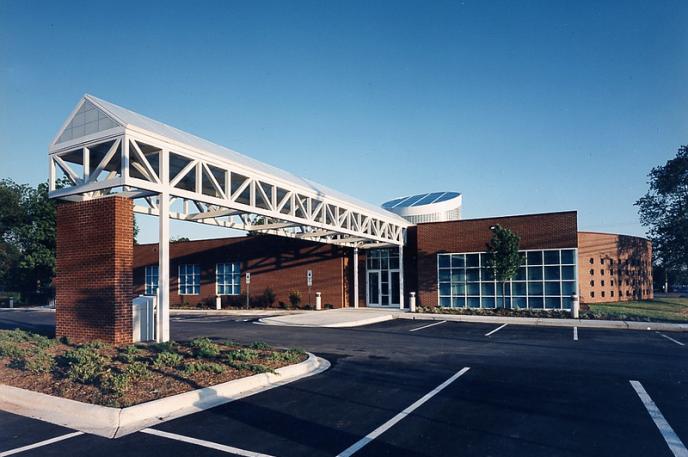
Get to Know the Allegra Westbrooks Regional Community
September 8, 2023
Situated conveniently off I-85 and Beatties Ford Road, Allegra Westbrooks Regional Library is located in the Lincoln Heights community in Charlotte’s Historic West End.
Formerly Beatties Ford Road Regional Library, Allegra Westbrooks Regional is the only Charlotte Mecklenburg Library named for an individual. Ms. Westbrooks began her career with the Public Library of Charlotte & Mecklenburg County in 1947. Prior to desegregation, she managed the only library serving African American residents in Charlotte at the time—the Brevard Street Library for Negroes. Ms. Westbrooks was promoted to Supervisor of Branches in 1957, making her the first African American public library supervisor in North Carolina. She served in this role for many years until her retirement in 1984. Ms. Westbrooks passed away in April 2017 at the age of 96.
Allegra Westbrooks Regional Library welcomes customers from many neighborhoods along and around busy Beatties Ford Road serving a diverse community of readers, learners, job seekers, entrepreneurs, community leaders, and more. A variety of library programs are offered including multiple book clubs, a multigenerational chess club, technology classes, and Storytime among others. Collections include a diverse selection of materials such as fiction and non-fiction titles in multiple world languages, African-American fiction collection and African-American and religion non-circulating collections.
Located just over a mile away from the Library is Johnson C. Smith University, Charlotte’s only historically Black college/university (HBCU) and West Complex, “the largest culturally centered placemaking project on the West Side.” Unique community organizations like For the Struggle, Inc. and Beatties Ford Road Vocational Training Center can also be found just blocks away from Allegra Westbrooks Regional. Well-established eateries like West End Fresh Seafood Market and Original Chicken and Ribs along with newcomer Archive CLT, a local staff favorite.
New residents may find support through the Office of Equity, Mobility, and Immigrant Integration , Refugee Health – Mecklenburg County Public Health, and Refugee Support Services. Are you new to Charlotte? Explore other neighborhoods through the Charlotte Mecklenburg Library blog and WelcomeCLT, a digital space created for newcomers to Charlotte.
Resources:
- Allegra Westbrooks Regional Library – 2412 Beatties Ford Rd Charlotte, NC 28216 | 704-416-3000
- Archive CLT – 2023 Beatties Ford Rd Suite D Charlotte, NC 28216 | 980-349-5595
- Beatties Ford Road Vocational Training Center – 1406 Beatties Ford Rd, Charlotte, NC 28216 | 980-349-4067
- For the Struggle, Inc – 1420 Beatties Ford Rd Charlotte, NC 28216 | 704-800-6628
- Johnson C. Smith University – 100 Beatties Ford Rd Charlotte, NC 28216 | 704-378-1000
- Office of Equity, Mobility, and Immigrant Inclusion – 600 E. Trade St Charlotte, NC 28202 | 704-336-1264
- Original Chicken and Ribs – 1100 Beatties Ford Rd Charlotte, N 28216 | 704-3322902
- Refugee Health – Mecklenburg Count Public Health – 2845 Beatties Ford Rd Charlotte, NC 28216 | 980-314-9470
- Refugee Support Services – 3925 Willard Farrow Dr Charlotte, NC 28215 | 704-458-3245
- West End Fresh Seafood Market – 2206 Beatties Ford Rd Charlotte, NC 28216 | 704-398-9001
This blog post was written by Alesha Lackey, regional manager for Charlotte Mecklenburg Library.
